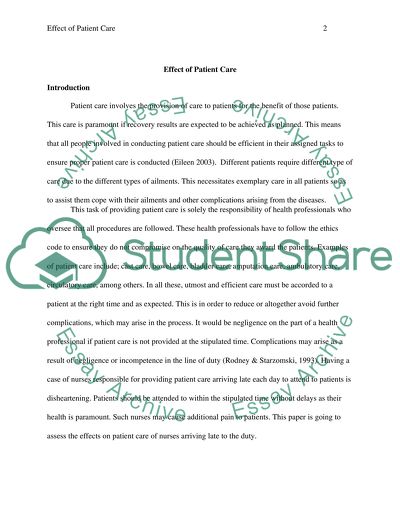Cite this document
(“Effect of Patient Care Essay Example | Topics and Well Written Essays - 3250 words”, n.d.)
Retrieved from https://studentshare.org/nursing/1395566-effect-of-patient-care
Retrieved from https://studentshare.org/nursing/1395566-effect-of-patient-care
(Effect of Patient Care Essay Example | Topics and Well Written Essays - 3250 Words)
https://studentshare.org/nursing/1395566-effect-of-patient-care.
https://studentshare.org/nursing/1395566-effect-of-patient-care.
“Effect of Patient Care Essay Example | Topics and Well Written Essays - 3250 Words”, n.d. https://studentshare.org/nursing/1395566-effect-of-patient-care.


